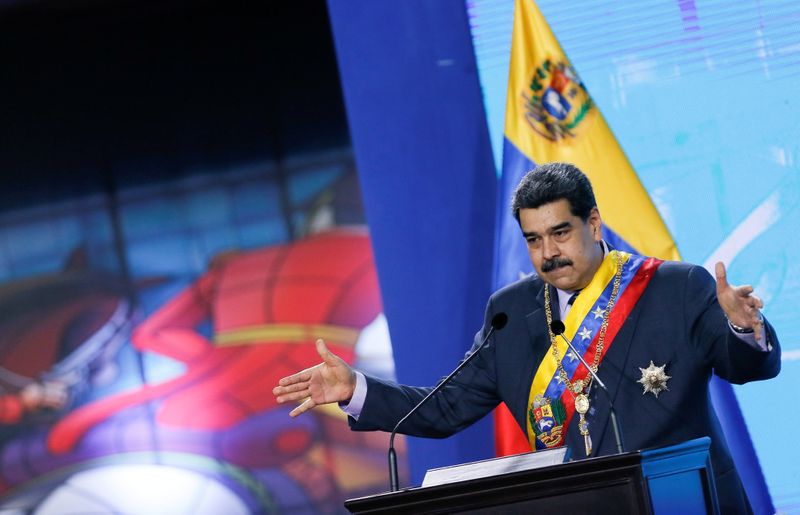By Matt Spetalnick
WASHINGTON (Reuters) - U.S. Secretary of State Antony Blinken vowed on Tuesday that Washington would work with partners in the region to maintain pressure on the government of Venezuelan President Nicolas Maduro for a peaceful return to democracy.
In pre-recorded remarks to a conference on Latin America, Blinken also said the Biden administration would continue criticism of the "repression of human rights" in Cuba.
Blinken's stern words came just a day after a senior White House official made clear in an interview with Reuters that the administration was in no rush to ease sanctions on Maduro's Socialist government or make major gestures toward Communist-ruled Havana.
That official's comments appeared aimed at dampening speculation that President Joe Biden might start loosening the screws on Venezuela in response to Maduro’s agreement to allow the World Food Programme (WFP) to begin operating there and the release to house arrest of six former executives of U.S.-based Citgo in an apparent goodwill gestures.
Blinken also gave no sign that Washington saw a diplomatic opening in Maduro's moves. The administration is reviewing crippling sanctions imposed on the OPEC nation by Biden’s predecessor, Donald Trump, as well as Trump's rollback of Obama-era detente with Cuba.
"The brutal Maduro regime has systematically repressed the rights of its citizens," Blinken told the conference, which was sponsored by the Americas Society and Council of the Americas. "Its abuse, corruption and mismanagement have stoked the humanitarian crisis.
"We will continue to work with our partners across the region both to alleviate the suffering of the Venezuelan people and to exert pressure on the regime so the country can peacefully return to democracy," he said.
Speaking earlier, Gregory Meeks, Democratic chairman of the House Foreign Affairs Committee, insisted there was a "window of opportunity" for U.S. engagement created by Maduro's overtures.
Blinken also urged countries to press Haiti to organize free elections by year-end and for Nicaragua to make electoral reforms to ensure a free vote in November.
The White House official told Reuters that Maduro was "sending signals” to the administration but it would not ease sanctions without concrete steps toward democratic elections.
Biden’s aides have made clear they continue to recognize opposition leader Juan Guaido as Venezuela’s rightful president.

Dozens of countries have backed Guaido’s claim following Maduro’s re-election in 2018 in a vote Western governments called a sham. But Maduro has retained support of the military as well as Russia, China and Cuba.